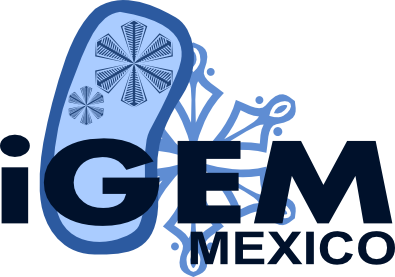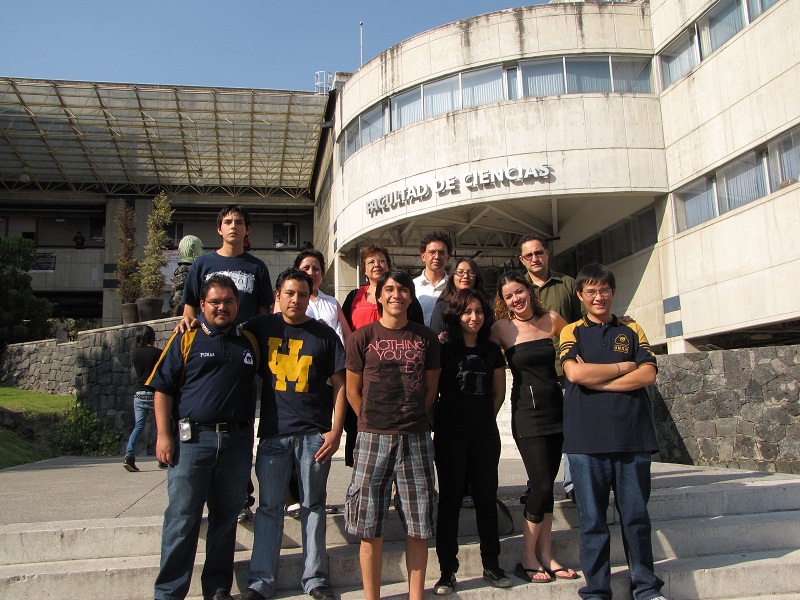Team:Mexico-UNAM-CINVESTAV/Home
From 2010.igem.org
(Difference between revisions)
(→Abstract) |
|||
| (22 intermediate revisions not shown) | |||
| Line 4: | Line 4: | ||
[[Image:Mx-Igem-cold-big.png|300px|center]] | [[Image:Mx-Igem-cold-big.png|300px|center]] | ||
| - | <center> | + | <center> '''A very cool ''E. coli''''' </center> |
| - | + | [[Image:abstract.jpg]] | |
| - | |||
| - | |||
| - | |||
| - | + | We begin by proposing a biosynthetic construction that enables ''Escherichia coli'' to produce an antifreeze protein, (AFP), at less than 15 degrees Celsius. This protein prevents ice crystal formation in the cell, which in turn allows survival at very low temperatures. | |
| + | We develop a switch by adapting the cold-shock ''E. coli'' operon with AFP from a generus of fishes (''Zoarces sp.'') using a positive feedback circuit. A very important potential application we are interested in is the use of AFP to designing systems helping crops to avoid potential damage from frosts. There are other possible important applications in tissue and organ preservation. | ||
| + | |||
| + | [[Image:Grupo.jpg|700px|center|]] | ||
| - | |||
| - | |||
| - | |||
| - | |||
| - | |||
| - | |||
| - | |||
| - | |||
| - | |||
| - | |||
{{Mexico-UNAM-CINVESTAV-FOOTER}} | {{Mexico-UNAM-CINVESTAV-FOOTER}} | ||
Latest revision as of 00:10, 28 October 2010
We begin by proposing a biosynthetic construction that enables Escherichia coli to produce an antifreeze protein, (AFP), at less than 15 degrees Celsius. This protein prevents ice crystal formation in the cell, which in turn allows survival at very low temperatures.
We develop a switch by adapting the cold-shock E. coli operon with AFP from a generus of fishes (Zoarces sp.) using a positive feedback circuit. A very important potential application we are interested in is the use of AFP to designing systems helping crops to avoid potential damage from frosts. There are other possible important applications in tissue and organ preservation.
 |
 |
 |
 |
 "
"







